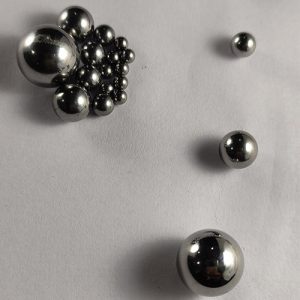
Steel Balls
Introduction
DSP Precision Products Pvt. Ltd., a distinguished name in the precision engineering sector, has been a leading manufacturer of high-quality steel balls for over 25 years. With a global clientele and a reputation for excellence, the company has established itself as a pioneer in producing steel balls that meet stringent industry standards. This detailed overview explores the intricacies of DSP Precision Products Pvt. Ltd.’s steel balls, covering the manufacturing process, material specifications, quality control measures, and their diverse applications.
1. Company Overview
1.1. History and Experience
Founded more than 25 years ago, DSP Precision Products Pvt. Ltd. has grown from a local manufacturer to a global player in the precision ball industry. The company’s extensive experience in steel ball manufacturing has enabled it to develop a deep understanding of the technical and commercial requirements of various industries. DSP Precision Products Pvt. Ltd.’s commitment to innovation, quality, and customer satisfaction has cemented its position as a trusted supplier worldwide.
1.2. Global Reach
With a diverse portfolio of clients across various continents, DSP Precision Products Pvt. Ltd. caters to a broad spectrum of industries. The company’s international presence is supported by a robust distribution network and a reputation for timely and reliable delivery.
2. Steel Ball Specifications
2.1. Material Composition
Steel balls manufactured by DSP Precision Products Pvt. Ltd. are primarily made from high-carbon steel, which provides superior hardness and durability. The main types of steel used include:
High-Carbon Steel (AISI 52100): Known for its excellent wear resistance and hardness, this steel is often used in precision applications requiring high performance.
Stainless Steel (AISI 304/316): For applications where corrosion resistance is critical, stainless steel balls are used. They offer good mechanical properties and resistance to oxidation and corrosion.
2.2. Mechanical Properties
Hardness: Steel balls are manufactured to achieve specific hardness levels, measured on the Rockwell C scale (HRC). Typical hardness ranges for precision steel balls are between HRC 60 and HRC 66.
Surface Finish: The surface finish of steel balls is crucial for minimizing friction and ensuring smooth operation in applications. DSP Precision Products Pvt. Ltd. uses advanced finishing techniques to achieve a mirror-like surface finish with minimal surface imperfections.
Dimensional Tolerances: The balls are produced to meet exact dimensional tolerances, ensuring uniformity in size and shape. Tolerances can range from ±0.001 mm to ±0.005 mm, depending on the application requirements.
3. Manufacturing Process of Steel Balls
3.1. Raw Material Preparation
The manufacturing process begins with the selection and preparation of raw materials. High-quality steel rods or wires are sourced and cut into blanks, which are then heated to prepare them for shaping.
3.2. Forming the Balls
Forging: Steel blanks are heated and forged into spherical shapes using specialized machinery. This process involves compressing the steel under high pressure to achieve the rough ball shape.
Hardening and Tempering: The forged balls are then subjected to heat treatment processes such as hardening and tempering. Hardening involves heating the balls to a high temperature and then rapidly cooling them to increase hardness. Tempering follows to reduce brittleness and achieve the desired mechanical properties.
3.3. Grinding and Polishing
Grinding: After heat treatment, the balls undergo precision grinding to achieve the final dimensions and spherical shape. This process ensures that the balls meet exact size specifications and surface quality.
Polishing: The final step involves polishing the balls to achieve a high-quality surface finish. This process removes any remaining surface imperfections and provides a smooth, reflective surface.
3.4. Quality Control
DSP Precision Products Pvt. Ltd. employs rigorous quality control measures throughout the manufacturing process to ensure that each steel ball meets the company’s high standards. Quality control steps include:
Dimensional Inspection: Advanced measurement tools and techniques are used to verify the size and shape of each ball.
Hardness Testing: Hardness is tested using Rockwell hardness testers to ensure that the balls meet the required specifications.
Surface Finish Inspection: The surface finish is inspected using optical and tactile methods to ensure that it is smooth and free from defects.
4. Quality Assurance
4.1. Certification and Standards
DSP Precision Products Pvt. Ltd.’s steel balls adhere to international standards such as ISO 9001 for quality management systems. The company also complies with industry-specific standards, including those set by the American Society for Testing and Materials (ASTM) and the International Organization for Standardization (ISO).
4.2. Testing Procedures
Each batch of steel balls undergoes a series of tests to verify their mechanical properties and performance. These tests include:
Impact Testing: To ensure the balls can withstand mechanical stresses and impacts during use.
Corrosion Testing: For stainless steel balls, corrosion resistance is tested to ensure long-term durability in harsh environments.
Dimensional Accuracy Testing: Precision measuring instruments are used to confirm that the balls meet the required dimensional tolerances.
5. Applications
5.1. Industrial Uses
Ball Bearings: Steel balls are a crucial component in ball bearings, where their precision and durability ensure smooth operation and reduced friction in machinery and equipment.
Automotive Components: In the automotive industry, steel balls are used in various components such as transmission systems, steering mechanisms, and suspension systems.
5.2. Aerospace Industry
Steel balls are employed in aerospace applications due to their high performance and reliability. They are used in bearings, actuators, and other precision components that require exceptional durability and performance.
5.3. Medical Devices
In the medical field, steel balls are used in surgical instruments, diagnostic equipment, and prosthetics. Their precision and biocompatibility are essential for ensuring the reliability and effectiveness of medical devices.
5.4. Consumer Goods
Sports Equipment: Steel balls are used in sports equipment such as bearings in bicycles, skateboards, and rollerblades, where their performance impacts the efficiency and safety of the equipment.
Toys and Games: Precision steel balls are also found in various toys and games, where they contribute to smooth operation and durability.
5.5. Precision Instruments
Steel balls are used in precision instruments and devices where exacting standards are required for accuracy and performance. These include measurement tools, calibration devices, and high-precision machinery components.
6. Advantages of DSP Precision Products Pvt Ltd’s Steel Balls
6.1. Expertise and Experience
With over 25 years of experience in the industry, DSP Precision Products Pvt. Ltd. has developed a deep expertise in steel ball manufacturing. This experience translates into high-quality products and reliable performance across various applications.
6.2. Precision Engineering
The company’s focus on precision engineering ensures that each steel ball is manufactured to exact specifications. This commitment to precision enhances the performance and reliability of the balls in their respective applications.
6.3. Customization Options
DSP Precision Products Pvt. Ltd. offers customization options for steel balls, including variations in size, material, and surface finish. This flexibility allows clients to obtain products tailored to their specific needs and requirements.
6.4. Global Clientele
The company’s extensive experience and global reach enable it to serve a diverse range of clients across various industries. DSP Precision Products Pvt. Ltd.’s reputation for quality and reliability has established it as a trusted partner for clients worldwide.
7. Environmental Considerations
7.1. Sustainable Practices
DSP Precision Products Pvt. Ltd. is committed to sustainability and environmental responsibility. The company implements practices to reduce waste, conserve energy, and minimize the environmental impact of its manufacturing processes.
7.2. Recycling and Waste Management
Steel balls are produced from recyclable materials, and the company has processes in place for managing and recycling waste materials. This contributes to a circular economy and reduces the environmental footprint of the production process.
8. Conclusion
DSP Precision Products Pvt. Ltd.’s steel balls represent a blend of precision engineering, high-quality materials, and extensive industry experience. With over 25 years in the industry, the company has established itself as a leader in manufacturing steel balls that meet the highest standards of performance and reliability. Serving a global clientele across various sectors, DSP Precision Products Pvt. Ltd. continues to deliver products that enhance the efficiency and effectiveness of machinery, equipment, and devices worldwide.
The company’s commitment to quality, precision, and customer satisfaction ensures that each steel ball manufactured is a testament to its expertise and dedication. Whether used in industrial applications, aerospace, medical devices, or consumer goods, DSP Precision Products Pvt. Ltd.’s steel balls are engineered to excel and provide lasting value to clients across the globe
1. Grades of Steel Balls
Steel balls are classified into different grades based on their precision and quality:
- Grade 100: High precision, ideal for applications with tight tolerances.
- Grade 200: Good precision, suited for general purposes.
- Grade 300: Lower precision, appropriate for less demanding applications.
- Grade 1000: Suitable for uses where exact precision is less critical.
2. Tolerance
Tolerance defines the allowable deviation from the nominal size of the steel ball. Typical tolerances include:
- Precision Balls: ±0.001 mm to ±0.01 mm
- Standard Balls: ±0.02 mm to ±0.05 mm
3. Hardness
Hardness indicates the steel ball’s durability and performance. Common hardness measures are:
- Rockwell Hardness (HRC): Typically between 40 and 60 HRC.
- Vickers Hardness (HV): Generally between 500 and 800 HV.
4. Sizes
Steel balls are available in a range of diameters from 1mm to 100mm. Here’s a size chart:
| Diameter (mm) | Typical Applications |
|---|---|
| 1 | Micro bearings, precision instruments |
| 2 | Small bearings, automotive parts |
| 3 | Ball bearings, small machinery |
| 4 | Industrial equipment, automotive |
| 5 | General bearings, machinery |
| 6 | Industrial applications, machinery |
| 10 | Larger bearings, heavy machinery |
| 20 | Industrial bearings, construction |
| 30 | Heavy-duty machinery, automotive |
| 50 | Large industrial uses |
| 100 | Specialized industrial machinery |
5. Manufacturing Processes
Steel balls are produced through various techniques:
- Cold Heading: Used for forming small to medium-sized balls.
- Heat Treatment: Enhances hardness and durability.
- Grinding: Achieves precise dimensions and a smooth finish.
- Polishing: Provides a high-quality surface for optimal performance.
Steel balls are used in a wide range of products and parts due to their durability, precision, and versatility. Here are some common applications:
1. Bearings
- Ball Bearings: Steel balls are crucial in ball bearings, which reduce friction and support rotational movement in machinery and automotive applications.
- Linear Bearings: Used in machinery to allow smooth linear motion.
2. Automotive Parts
- Engine Components: Steel balls are used in various engine parts, such as camshaft bearings and throttle control systems.
- Transmission Components: They are found in gear assemblies and shifters.
3. Industrial Machinery
- Pneumatic and Hydraulic Systems: Steel balls are used in check valves and other components to control fluid flow.
- Milling and Grinding Equipment: Used in grinding media for mills to crush materials.
4. Aerospace Components
- Aircraft Bearings: Used in high-precision bearings for engines and landing gear.
- Actuators: Steel balls are used in actuators for precise control mechanisms.
5. Medical Devices
- Surgical Instruments: Steel balls are used in instruments such as surgical drills and bone screws.
- Medical Imaging: They can be part of calibration tools and fixtures in imaging equipment.
6. Sports Equipment
- Golf Balls: Steel balls are used in some types of golf club heads and putters.
- Sports Training Devices: Found in equipment for improving accuracy and precision.
7. Household Items
- Door Locks and Latches: Steel balls are used in locking mechanisms for smooth operation.
- Hinges and Fixtures: They provide durability and smooth movement in various household fixtures.
8. Tools and Equipment
- Machine Tools: Steel balls are used in various machine tools for precision and stability.
- Clutches: Found in clutches for smooth engagement and disengagement.
9. Consumer Products
- Jewelry: Steel balls are used in some types of jewelry for aesthetic and functional purposes.
- Decorative Items: Used in various decorative applications and crafts.
10. Military and Defense
- Ammunition: Steel balls are used in certain types of ammunition and projectiles.
- Armoring: Employed in protective gear and armor plating.
Summary
Steel balls are integral to many applications across various industries due to their strength, precision, and durability. From high-precision aerospace components to everyday household items, steel balls play a vital role in enhancing the functionality and reliability of numerous products and parts.



